Van der Poel back on the road in Arctic Norway with sights set on Yorkshire Worlds
'It normally only takes me one or two days to switch from mountain bike'
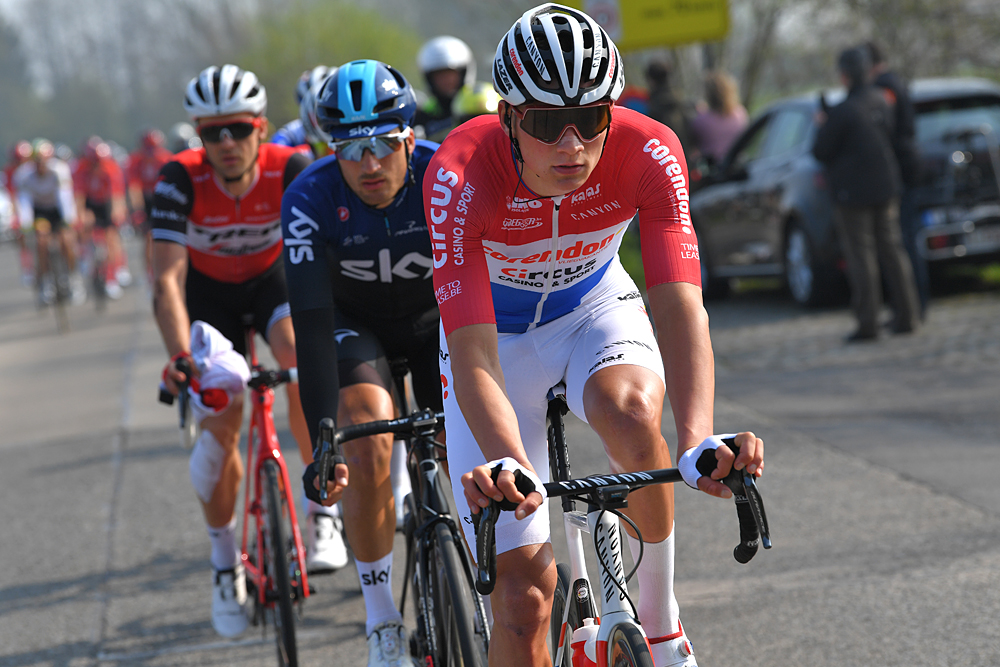
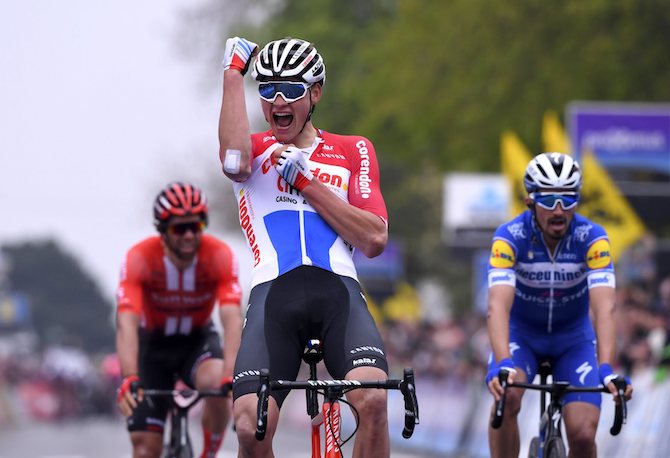
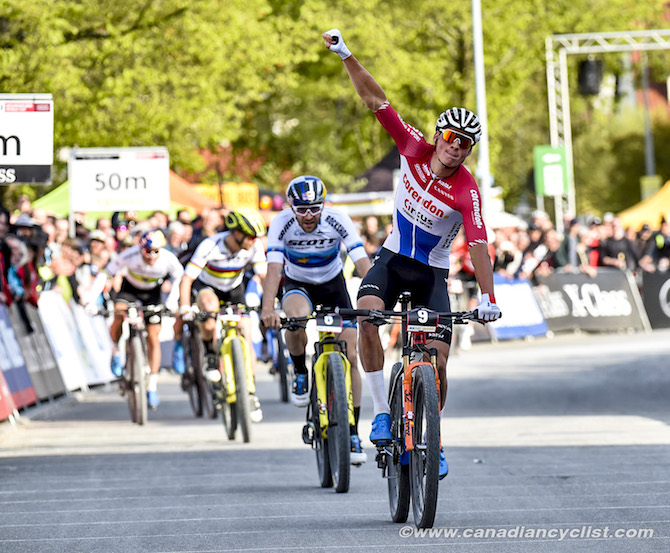
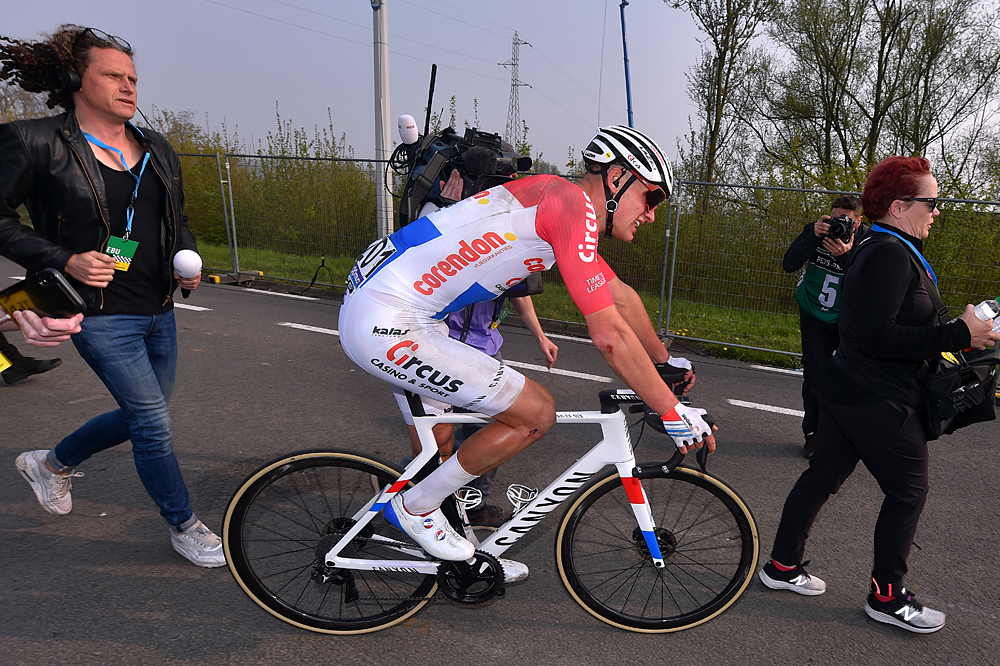
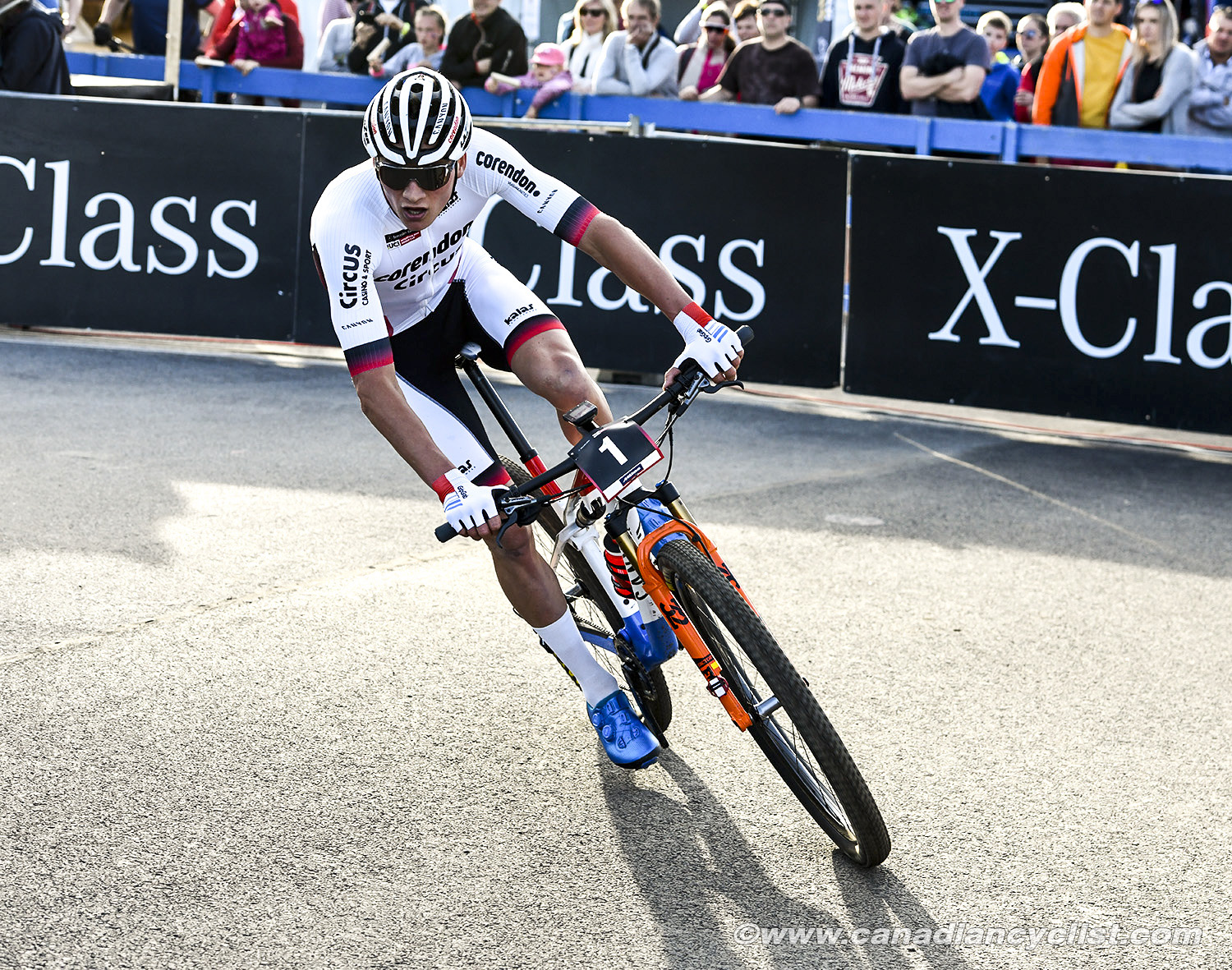
Mathieu van der Poel was celebrating victory in one of the biggest mountain bike races in the world on Sunday, but just a couple of days on the Dutchman finds himself back on the thin tyres and stiff carbon of his road bike, eyeing one of road cycling’s biggest prizes in just over a month’s time.
Van der Poel, the cyclo-cross world champion who had a sensational debut Spring Classics campaign for Corendon-Circus on the road, has been racing his mountain bike over the summer, winning no fewer than three rounds of the World Cup. He has made a breakthrough in the discipline, to the extent that he feels he's finally on a par with Nino Schurter, yet he's bypassing the MTB Worlds in order to target the Road Worlds, with the Yorkshire course on September 29 representing too good an opportunity to pass up.
Van der Poel arrived in Svolvær in northern Norway on Tuesday for the 2019 Arctic Race of Norway, his first outing on the road since he won Amstel Gold Race in April. The four-day race, where he won two stages last year, begins on Thursday and was preceded on Wednesday by a sea eagle-watching expedition, which Van der Poel declined due to the wet and windy conditions.
"This is a race to get back on the road bike and get a good feeling again on the road. The shape is pretty good – otherwise you don't win a mountain bike World Cup – but this is different. The stages are much longer. I haven't done any long rides in the past few weeks, so that's going to be the hardest thing," Van der Poel said.
"It's quite a big adaptation, so it's going to be a shock to the body. It's going to be strange to be back on a road bike again but normally it only takes me one or two days to get the good feeling back."
Van der Poel, 24, has already demonstrated his ability to flit seamlessly between the three disciplines. After a winter of cyclo-cross domination, culminating in the world title, he hit the road and immediately slotted in as one of the very top spring Classics riders, winning Dwars door Vlaanderen and Amstel Gold Race, as well as finishing fourth in his first Tour of Flanders.
In the case of Amstel, he spent over six hours longer on the bike than he did at the cyclo-cross Worlds or at Sunday's mountain bike World Cup, and he says that the biggest challenge is simply rediscovering that endurance.
Get The Leadout Newsletter
The latest race content, interviews, features, reviews and expert buying guides, direct to your inbox!
"Cyclo-cross is a little different, and I don't put it in the same box as the other two because it's in winter and it's very specific, but during the summer, when I do both, when I go from mountain bike to road, I don't have the endurance to be at my best at the end of a race. Then when I come from a long period of cycling on the road I don't have the interval training needed to guy with the best guys on the mountain bike," Van der Poel explained.
"There's no real mental switch, it's just physically I'm not used to being on a bike for that long. I've prepared really well for mountain biking in the last months, doing intervals and not really endurance. It's more than a month since I did a long endurance training ride, so that will be the problem. That's the reason I wanted to start here again, to get back into racing on the road bike and get the endurance back."
As such, Van der Poel is cautious about his chances of success over the next four days, despite his billing as a contender for the overall title. He won two stages in last year's edition but finished 12th overall after losing more than a minute on stage 2.
This time, the route is made even tougher by the summit finish at Storheia (3.5km at 11.8 per cent) on stage 3, which should shape the overall classification. The first two stages are likely to end in bunch sprints, with the first featuring some hills that could give Van de Poel a chance, while the final stage ends with three laps of a hilly finishing circuit in Narvik and an uphill sprint.
"I'm not really aiming for GC – I think it's a bit too hard for me – but maybe I can try and win a stage again," Van der Poel said.
"We saw last year the climbing was already too hard, and from what I've seen it's even harder this year, so it's not really an objective for me. We have some other guys in the team who are strong uphill. I'd like to try and win one stages and then on the other ones help my teammates into a good position."
After Norway, Van der Poel will head to altitude to complete a block of training that will see him build the kilometres and the base endurance needed for the Worlds in September. He'll ride the week-long Tour of Britain from September 7, followed by the possibility of a couple of Belgian semi-classics to get him into the flow of one-day racing.
It's a tall order, but Van der Poel's performances this spring suggest he could become world champion with so little prior experience. There won't be many editions so well suited to him as the undulating course in Yorkshire.
"That's one of the reasons I chose to do the Worlds, because I think I have a good chance. World Championships courses are sometimes too hard for me, or if not, it's a sprint. So I think Yorkshire is a good one for me."
Patrick is a freelance sports writer and editor. He’s an NCTJ-accredited journalist with a bachelor’s degree in modern languages (French and Spanish). Patrick worked full-time at Cyclingnews for eight years between 2015 and 2023, latterly as Deputy Editor.
